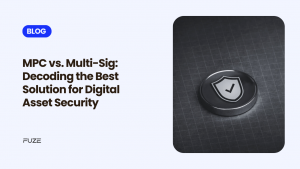One of the most compelling reasons to accept Bitcoin is the potential cost savings. Traditional credit card processing fees can eat into your profits, typically ranging from 3% to 4%. For every $10,000 you earn, a significant portion goes towards these fees.
Bitcoin transactions, on the other hand, often come with minimal or no processing fees, allowing you to keep more of your earnings. Bitcoin transactions are also generally irreversible, meaning there’s no risk of chargebacks or disputes. This can save you time and money, as you won’t have to deal with the hassle of chargeback procedures or pay associated fees.
However, navigating the process can be a tad difficult. So here’s our in-depth guide on how you can make your business platform Bitcoin-friendly and accept customer payments. Let’s start.
Bitcoin vs. traditional payment methods: A comparison
While Bitcoin and traditional payment methods like fiat currency and credit cards share some similarities, there are also significant differences that businesses should consider.
- Speed and settlement time
Bitcoin transactions typically settle within a few minutes or hours, offering faster settlement times compared to traditional bank transfers.
Bank transfers, on the other hand, can take several days or even weeks, especially for cross-border transactions. Credit card transactions usually settle within a few days.
2. Fees
Transaction fees on the Bitcoin network vary based on network congestion. While fees can be higher during periods of high activity, they are generally lower than traditional payment processing fees.
In comparison, credit card processing fees typically range from 2-3% of the transaction amount. Bank transfers may also incur fees, especially for international transactions.
3. Security
Bitcoin transactions are secure and irreversible, reducing the risk of fraud and chargebacks.
As mentioned earlier too, credit card payments are generally secure, but they are subject to fraud and chargeback risks. An analysis in 2020-21 revealed that nearly 96% of all credit card transactions in the US and Canada lead to chargebacks.
Crypto processors and their role in the payment process
When accepting Bitcoin or other cryptocurrencies, it’s crucial to consider how you’ll handle the volatility inherent in these digital assets. While some businesses may choose to hold onto their crypto payments, others may prefer to convert them into a more stable currency like US dollars.
Crypto payment gateways play a vital role in this process. When someone pays you in Bitcoin, for example, the crypto payment processor acts as a middleman. It receives the Bitcoin payment, converts it into your preferred currency (like US dollars), and then transfers the funds to your bank account. Think of it like exchanging foreign currency at an airport. The exchange counter is the payment processor, taking your foreign currency and giving you local currency. It handles the conversion and exchange rates for you.
When selecting a crypto payment processor, several factors should be carefully evaluated to ensure a smooth and secure experience.
- Supported cryptocurrencies
Ensure the crypto payment processor supports the cryptocurrencies you want to accept. This includes considering the popularity of these cryptocurrencies among your target audience. A wider range of supported cryptocurrencies can attract a broader customer base.
- Fees and costs
Always compare the fees charged for processing crypto payments on various platforms. Evaluate and analyse any initial setup fees or ongoing subscription charges. Consider the fees associated with converting cryptocurrencies into your preferred fiat currency.
- Security
Online data security is of vital importance in any transaction. Ask your crypto processor about their data security practices. Ensure the processor uses SSL certificates to protect sensitive data, and verify that the processor stores a significant portion of its funds in cold storage to minimize the risk of hacking. Do additional research on their KYC and AML (Anti Money Laundering) procedures, and make sure they operate within the legal framework of your regulatory jurisdiction.
- Integration and support
Accepting Bitcoin payments should be as easy as adding a plugin or app to your e-commerce platform. Many popular platforms offer built-in support for cryptocurrency payments, making the process straightforward. If your platform doesn’t have native Bitcoin support, you can still integrate payments using HTML code provided by your cryptocurrency wallet. This option gives you more flexibility but may require some technical knowledge.
Plus, you need to check that the bitcoin transactions are being recorded by your accounting software and being read the same as other transactions. .
Now, if a crypto processor needs significant effort to be integrated into your checkout platform, it will add to your functional costs. Hence, it is always better to ask for clear and comprehensive API documentation to facilitate integration, and check if they provide tech help to ensure smooth onboarding.
Top crypto payment gateways for international businesses in 2024

- Fuze
Fuze stands out as a leading cryptocurrency payment gateway, particularly for institutions and businesses dealing with large-scale transactions. It offers a comprehensive suite of services, including crypto brokerage, backend support, and API integration for seamless integration into existing systems. Fuze’s user-friendly interface and excellent customer support make it a top choice for businesses of all sizes seeking to leverage cryptocurrency payments. To learn more about Fuze, visit https://fuze.finance/ and request a demo.
- Coinbase
Backed by the reputable Coinbase brand, Coinbase Commerce is a popular choice for businesses looking to accept cryptocurrency payments. It supports multiple cryptocurrencies and offers easy integration with major e-commerce platforms. Its user-friendly dashboard and conversion options to fiat currency make it a convenient option for businesses of all sizes.
- BitPay
As one of the pioneers in the crypto payment space, BitPay offers a wide range of features, including support for multiple cryptocurrencies, instant conversion to fiat, invoicing, and secure payment processing. Its integration with various shopping cart systems and e-commerce platforms makes it a versatile choice for businesses.
- CoinGate
CoinGate is a comprehensive crypto payment solution that supports over 50 cryptocurrencies. It offers features like automatic conversion to fiat, payment buttons, and API integration, making it suitable for international businesses. Its versatility and extensive cryptocurrency support make it a popular choice among merchants.
- NOWPayments
NOWPayments is a non-custodial crypto payment gateway that supports a broad spectrum of cryptocurrencies. It offers instant payment notifications, low fees, and easy integration options. This makes it a good choice for businesses seeking a secure and efficient payment solution.
Conclusion
Integrating cryptocurrency payments, particularly Bitcoin, offers businesses significant advantages like cost savings, security, and faster transactions. By selecting the right crypto processor—whether Fuze, Coinbase, BitPay, or others—businesses can seamlessly and securely handle cryptocurrency payments. With the right tools and knowledge, companies can make informed choices and unlock the benefits of crypto for global transactions.







